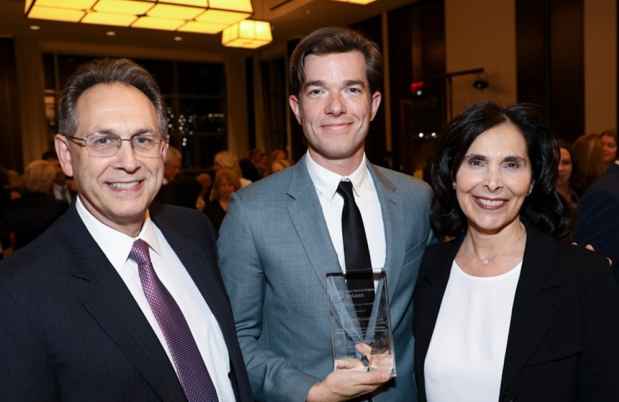On April 17, 2017, Ana Febres-Cordero, a suicide survivor, and her father Rafael will run the Boston Marathon to support public awareness and outreach programs focused on eliminating the stigma surrounding mental illness. Ana was inspired to partner with McLean Hospital to develop Deconstructing Stigma: Ana’s Marathon Fund because of a shared mission to eliminate the obstacles that discourage too many people from seeking mental health care and to educate friends, families, and neighbors of those with mental illness about what they can do to help support recovery.
Along with running to raise awareness, Ana is participating in the next phase of McLean’s Deconstructing Stigma: A Change in Thought Can Change a Life national public awareness campaign. Deconstructing Stigma currently includes a 235-foot-long physical installation at Boston Logan International Airport that features a series of larger-than-life photographs of people who have been affected by mental illness and a website with compelling stories told through the eyes of the campaign’s participants.
“The stigma around mental illness is so prominent that people just associate it with weakness,” said Ana, who lives in Concord, Massachusetts. “That’s what’s motivating me to talk about it, because it’s not only about helping the people who are living with mental illness, it’s also about teaching others how to help those who are suffering.”
Ana, 20, is a smart, athletic, and talkative young woman who smiles and laughs easily. She also is someone who has felt the heavy weight of depression, lacking the desire to get out of bed for days on end and experiencing uncontrollable and unanticipated bouts of crying and sadness.
It started when she was a junior in high school.

“I would go through these spurts where it would just hit me, and I would be at an all-time low for a month or two and then I would come back up and I would be fine,” she explained. “When I went to college, it really started to take a toll on me.”
During high school, Ana was not open about her depressive thoughts. She would periodically mention her struggles to her mother, but they managed to tie her sadness to the challenges that many teens face—concerns about physical appearance, the fluctuations of friendships and relationships, and the stress of leaving home for college.
Her depression, however, intensified during her first year of college. While her classmates studied or went social events, she just stayed in bed.
“I stopped going to classes,” said Ana. “I stopped doing homework. I received emails from my teachers, but I didn’t respond because I didn’t care.”
It was becoming obvious to her friends that she needed professional help. After being persistently pressed by them to seek care, Ana eventually, and unenthusiastically, went to see a mental health counselor on campus. After the session, instead of feeling relieved or hopeful, she felt “so weak and so pathetic.”
A few weeks later, Ana attempted suicide. Fortunately, her friends walked in on her, realized what was happening, and immediately called for help. Once her parents were notified, Ana’s mom drove straight from Massachusetts to Pennsylvania in order to be by her daughter’s side early in the morning.
From that point onward, Ana—diagnosed with major depressive disorder, social anxiety, and an eating disorder—has been a willing participant in treatment. She no longer is going to let stigma make her feel embarrassed about seeking help.
“You don’t have to go through it alone,” Ana explained. “You don’t have to be afraid to reach out for help.”
As Ana’s mental health improved, she started to exercise regularly again. Her father noticed her revived passion for running and asked her whether she was interested in running the marathon. Her response was immediate and enthusiastically positive. He then asked her whether she wanted to add greater meaning to the goal by running for a cause.
Soon after her father issued this proposal, Ana’s uncle called to talk to her about an exhibit he noticed at Logan Airport—Deconstructing Stigma. Ana visited the website, and she was hooked. She had found her cause.
Ana said that training for her first marathon with her father has brought them closer, complete with a little competitive mischief.
“I would like to run it in four hours,” said Ana. “I know that’s very ambitious, but me and my dad are really competitive. On every single run we’ve done over the weekend, he’ll start flying ahead of me for the first three miles and then by the end of the run I always finish first.”
But would she take off and leave her father behind on race day?
“I wouldn’t, because none of this would be possible without my dad,” said Ana with a smile. “He stood by me through all of this.”
If you are interested in supporting Ana’s mission, please visit the Give page.
Media Requests
Journalist or member of the media? We are available 24/7 for media requests.



